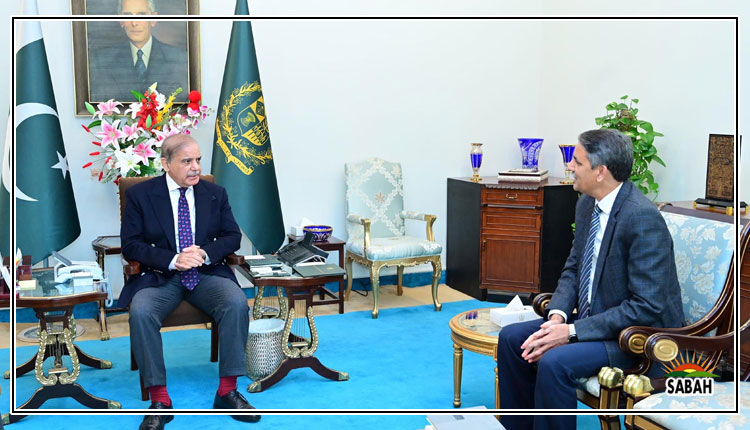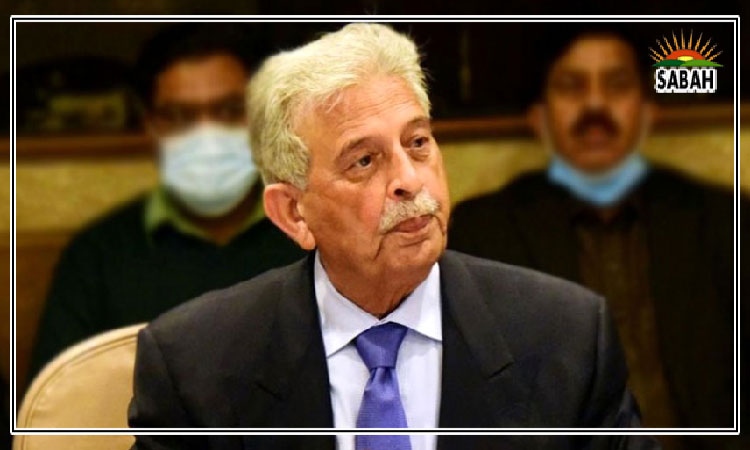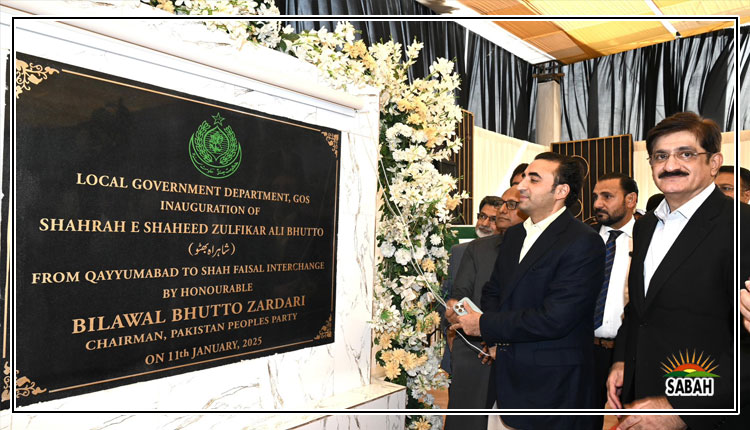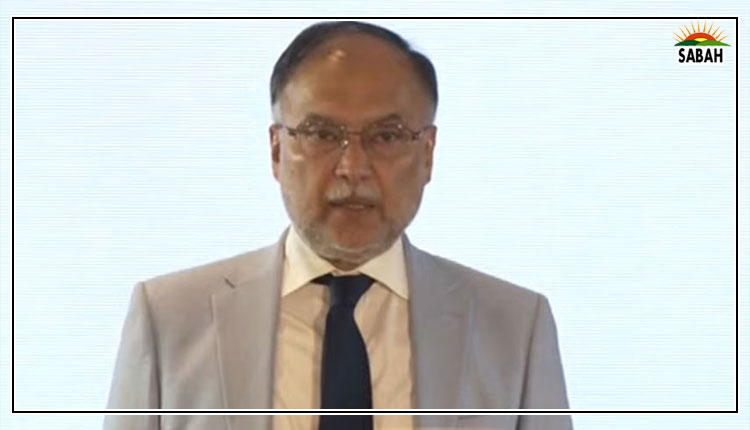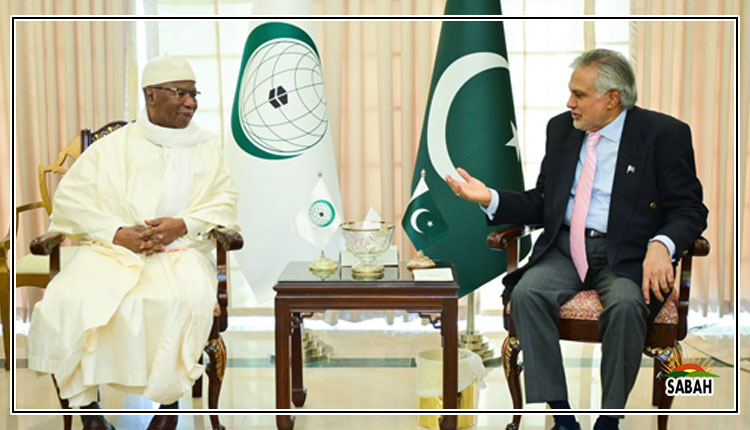Weapons over welfare?…By Sohail Azmie
Sensitive to its threat perceptions and evolving geostrategic environment in the Indian Ocean, and cognizant of the resource constraints, the Pakistan Navy has been steadily developing its combat capacity.
This is in pursuit of the navy’s strategic direction to become a dependable military service of the country, which is ready, responsive and resilient across the entire spectrum of conflicts. This development of capability has caused unease in some circles across the border. Indian Naval Chief Admiral Denish Tripathi, while addressing a pre-Navy Day press conference on December 2, 2024 at New Delhi, described the emerging warfighting potential of the Pakistan Navy as it choosing ‘weapons over welfare’.
This sordidly condescending phrase is not just misleading but also misplaced. While opinions and perspectives are natural in such discussions, some claims deserve closer scrutiny to ensure they reflect reality. The objective here is not to delve into comparisons or criticisms but to provide a context for a more informed understanding of the Pakistan Navy’s priorities and contributions.
The notion of prioritising ‘weapons over welfare’ does not align with the Pakistan Navy’s diverse roles, which extend far beyond defence. In addition to maintaining maritime security, the navy has consistently contributed to the socio-economic uplift of coastal communities. Initiatives such as the establishment of Cadet College and Naval Hospitals in Ormara and Turbat are some markers of the navy’s responsibility to education and healthcare for underserved regions. These facilities, alongside skill development and sports programs, are the visible pillars of community welfare that the Pakistan Navy is ranked with.
These contributions are a core part of the Pakistan Navy’s mission, which emphasises welfare through the uplifting of coastal communities alongside operational readiness. For instance, during the catastrophic 2022 floods in Pakistan, the navy played a critical role in saving lives, providing medical assistance to thousands and delivering essential supplies to displaced families. These efforts are the manifestation of the navy’s ‘operational duality’ — its commitment to national security and humanitarian service.
Maritime security is crucial for nations like Pakistan, whose economic stability depends on safe and secure sea lines of communication. Defence spending, including naval modernisation, is not about excess but necessity. Pakistan’s maritime policy is shaped by regional challenges and the imperative to maintain a credible minimum deterrence. This is in sync with Pakistan’s firm belief in peaceful co-existence while steering clear of aggression and military ‘number matching.’
The Indian Navy’s budget, which exceeds $10 billion compared to the Pakistan Navy’s modest $780 million, is a pronounced reflection of the deep disparity in resources. Yet, Pakistan focuses on maintaining a denial-centric capability, ensuring self-defence without excess and extravagant military spending.
These realities, nonetheless, point out that both countries face unique challenges in balancing security with available resources. Pakistan does not get into the madness of an ‘arms race,’ which it believes is neither sustainable nor beneficial for regional stability. Therefore, the Pakistan Navy’s force goals remained modest for a long time, despite the fact that it stands at a 1:5 numerical disadvantage with respect to its eastern nemesis.
Safety records, operational excellence and material challenges within any naval force, including high-profile incidents, often are reflective of the people-focused policies, besides several other factors. Without going into the details of the streak of the Indian Navy’s accidents and operational issues (routine submarine detections in Pakistani waters, for instance), one may posit that a poor safety track record, whether through recurrent accidents or operational failures, indicates deeper issues related to the prioritisation of welfare.
It could also mean that the well-being of personnel, including proper training and leadership, may not have been accorded the due attention. An introspection could dispute the label ‘weapons over welfare’ being used for the Pakistan Navy.
The Indian Ocean’s vast resources and strategic importance create opportunities for regional cooperation. Addressing shared challenges such as climate change, maritime pollution, illegal fishing and piracy, which transcend borders, requires a ‘region-owned, region-led’ approach. In the Indian Ocean, one may see it as ‘one ocean, one course, one destination,’ which is about unity, shared responsibility and collective progress among the nations bordering or relying on the Indian Ocean. The above phrase suggests that the Indian Ocean demands collective stewardship (one ocean), making it essential for its littorals to align their maritime efforts (one course) towards a secure, stable and prosperous Indian Ocean (one destination).
The Pakistan Navy has been consistent in pursuit of these ideals, participating in international humanitarian missions and disaster relief efforts, and organising collaborative exercises such as AMAN and AMAN Dialogue (scheduled next year). The Pakistan Navy understands that rather than emphasising differences, maritime cooperation offers a path toward stability and peace. Constructive engagement can pave the way for mutual growth, benefiting all nations in the region.
Statements that perpetuate misconceptions or encourage stereotypes risk undermining the collective goal of regional stability by incentivising rifts and mutual discords. Instead, focusing on collaboration and shared responsibilities in the maritime domain yields positive outcomes for all.
The Pakistan Navy, in line with Pakistan’s foreign policy, remains committed to its multifaceted roles, balancing defence, welfare and regional cooperation. Positive engagement, rather than divisive narratives, is the need of the hour for a safe, secure and prosperous Indian Ocean.
COURTESY



